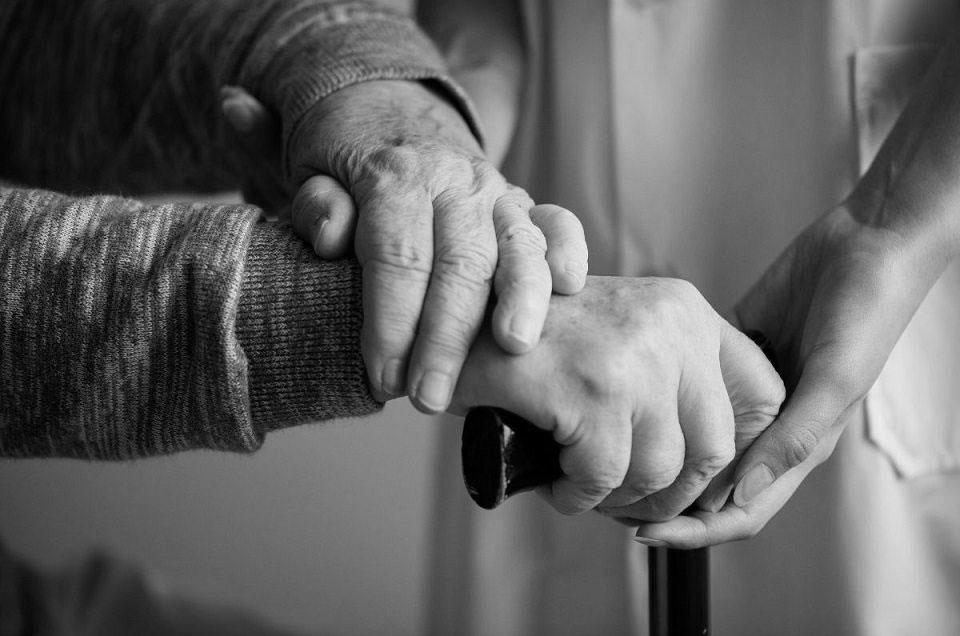Sometimes, and with increasing frequency due to the aging of the population, we are faced with the task of caring for an elderly person or a large dependent (which does not necessarily have to be an elderly person; example, in the case of a stroke) at home.
Sometimes we cannot do it alone and we look for someone to help us. In these cases, we do it, as they say vulgarly, with our hearts in our fists. Leave your father, mother, uncle, grandmother, etc. Taking care of someone in the hope that they will take care of it as if you would, is a difficult task.
In any case, whether we do it alone or with the help of a professional, there are certain very common mistakes that we must try to avoid. Some of the most relevant would be the following:
I. Cancellation
Helping is not nullifying. Autonomy is one of the elements that most enrich our self-esteem, so it is important to maintain it in the people we help.
We should let them do whatever they can, with patience, because it may take more time to do it alone than if we do it for them.
It is an exercise for everyone, for us, who must know how to wait and give them the opportunity, and for them, who, by making an effort, can develop tasks that reinforce their self-esteem and make them happier.
At this point, it should be taken into account that, usually, the loss of independence is a path of no return. Yes, progressively we are getting used to doing basic tasks for them, sooner or later they will stop doing them, because they can no longer, do not know or do not feel safe to do them.
II. Absence of routines
As the years go by, the oversights do too. We often find that our elders «miss» mealtime, forget to drink or do not remember to take their medicines when appropriate.
To avoid these distractions and the problems that they can lead to, it is advisable to establish a daily routine for meals, baths, physical or mental activities, night’s sleep and naps. This, in addition, will provide them with security.
III. Lack of foresight
Sometimes there are situations that cannot be foreseen, such as an accident. Others, for the most part, we do see them coming. Therefore, when we see that our elders begin to lose some faculty, we must take action.
In addition to the inevitable visit to the doctor, it is advisable to attend to the state of the house. If there are stairs that prevent access to the bedroom or some place with a lot of traffic, bathtub or very narrow doors through which a wheelchair would not fit, it is advisable to remove these barriers before the problem arrives. It would also be advisable to install safety bars in the bathroom or hire a warning service in case of emergency.
Likewise, we can think of changing the mattress (put one that avoids bedsores) or the bed for an articulated one. There are also electric sofas that help to mobilize people with reduced mobility.
Finally, if we see that the situation is overwhelming us and we need additional help, it is a good time to think about how we will organize it. For example, we can start to think if someone is going to come to help us, we are going to look for a day residence so that they stimulate the elderly), if we are going to take turns with family members and the oldest will rotate from one house to another or, if the relatives will take turns attending to the elder at home.
IV. Lack of stimulation
We always think about physical health, which is obviously essential, but we must also pay attention to emotional health.
Recent studies support the effect of motivation on the mood of people. The more we encourage our elders to do new tasks, the happier they will be when they do it. We can animals both to perform physical tasks (yesterday we walked 5 minutes, we are going to try to walk 7 today), as well as mental tasks (make a puzzle, read with them, teach them how to use the computer to read the press or some application on the mobile that they let you see or talk with your family).
V. Be little patient
Often, older people make a mistake when they speak, they do not understand what we say to them the first time, they repeat things, or they say some that seem to us to be meaningless.
On those occasions, after a long day at work and the emotional stress of seeing someone you love in a state that you would like to be different, it is easy to lose patience. However, we recommend that you have a little left hand: speak with them slowly, with simple sentences, simple words and calmly.
This helps convey peace of mind and, by relaxing, they are often able to communicate better.
